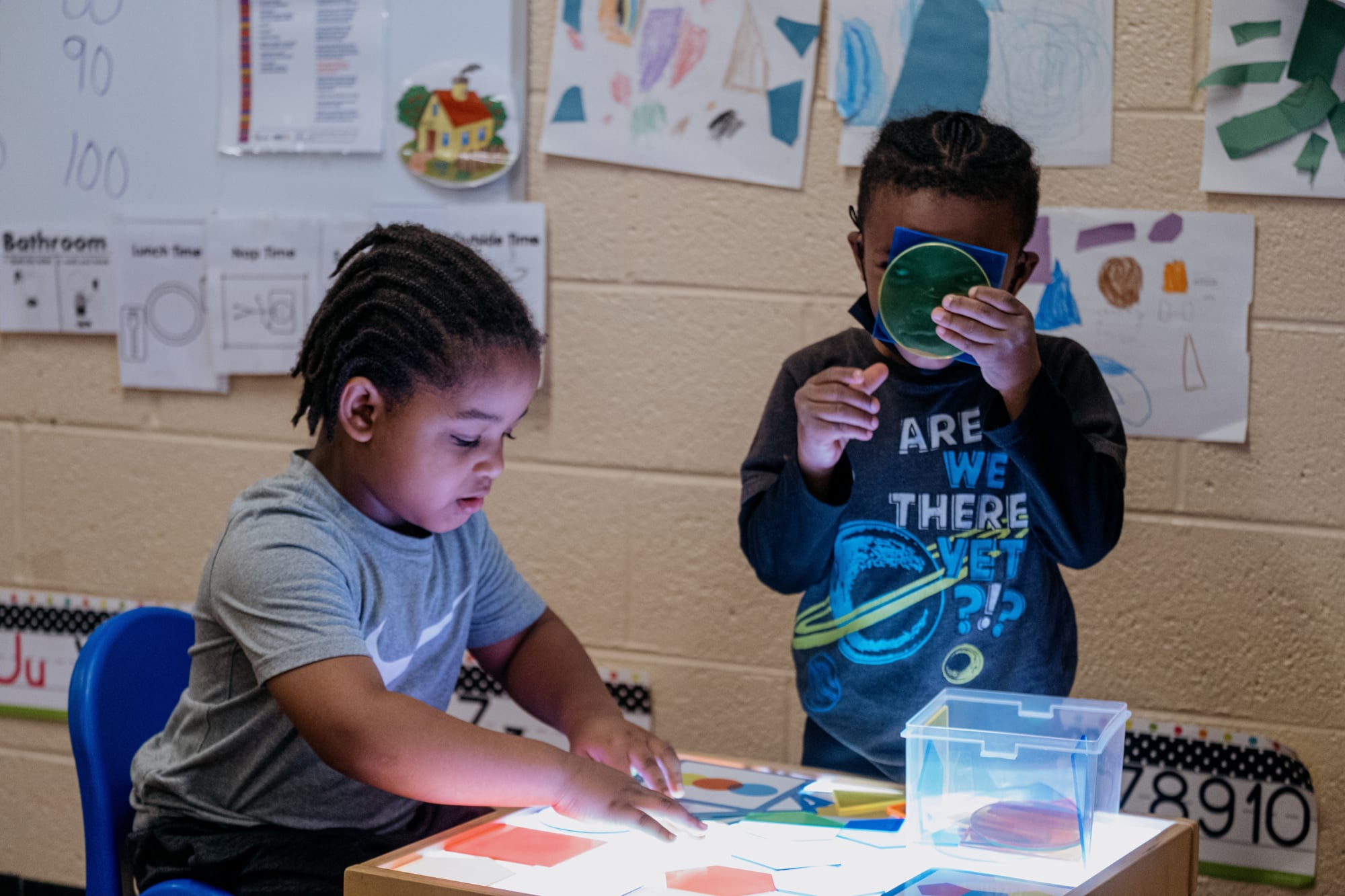The city of Detroit isn’t dedicating any of its $826 million in federal COVID relief funds to local child care providers — a missed opportunity, advocates say, to support a critical service for children, families, and the local economy.
While other large cities put aside COVID funds specifically for child care facilities and early educators, Mayor Mike Duggan’s administration shelved a planned $6 million investment in child care infrastructure to make more room for investments in home repairs, internet access, and job training.
Officials plan to send a sliver of the federal aid to the child care sector — roughly $775,000, or 0.09% of the total — through economic development programs that will support child care programs along with other businesses.
The $6 million plan is still in place, but the city will look to philanthropies and corporations to cover the cost, said Adrian Monge, director of the city’s Office of Early Learning, whose position is also funded by philanthropic contributions.
Critics say the decision is a sign that the city isn’t putting skin in the game to support a child care sector bruised by the pandemic. They’re calling on city officials to back up their talk of supporting early education and use the city’s federal funds to pay for the plan.
“It is inconceivable that city governance would not dedicate available funding to offset the challenges like living wages for early educators and more,” said Denise Smith, director of Hope Starts Here, a Detroit-based early childhood initiative backed by some of the same nonprofits that fund Monge’s position. She noted that the city has a “deficit of 22,000 licensed quality options for families needing child care.”
“The Office of Early Learning has proposed a solid plan that has been endorsed by early childhood stakeholders,” she added. “It feels untenable that the funding to support this plan has not been granted.”
Duggan has said for years that he wants to expand the city’s early childhood offerings. But his latest efforts to expand the city’s role in preschool ran aground during this year’s state budget negotiations, and the city’s other early education initiatives, like the Office of Early Learning, are supported by outside funding.
Child care providers say the city could make a big difference with the COVID relief dollars.
“Help us with that funding so that the children have a cleaner and safer environment for children to play in, and we can beautify the city,” said Denise Lomax, owner of Child Star Development Center, a highly rated child care center with two locations in Detroit. “Help us with funding to employ more people, so we can give them a decent wage.”
Lomax added that she put in a request nearly a year ago to purchase and clean up vacant lots owned by the Detroit Land Bank near one of her centers, but she said officials haven’t responded to the request.
Monge said the city is focusing on using its existing resources to support child care programs.
“The city’s departments develop plans and strategies and drafts all the time to figure out how to get the most funding to Detroiters and to best serve our city,” she said. “Those things are always in process and subject to change.”
Other major cities have set aside COVID funds to directly invest in child care educators and facilities, according to data from April collected by the National League of Cities. Milwaukee plans to improve its educator pipeline by paying for Black male high school students to obtain child care credentials. Baltimore will provide direct aid to providers negatively affected by the pandemic. Phoenix plans to build a child care center for airport workers. Boston will pay providers to hire new staff.
Detroit received $826 million from the American Rescue Plan Act, the largest of several relief packages approved by Congress during the pandemic. The city has so far spent only about 5% of that, mostly on community health workers, foreclosure prevention programs, and administrative costs.
While Detroit’s allocation was among the largest of any U.S. city, it has a wide range of urgent investment needs resulting from the deterioration of its industrial and tax bases over several decades.
“There are so many competing priorities, and there’s a lot of need,” said Tonja Rucker, director of early childhood success at the National League of Cities, which tracks ARPA spending.
“But on the early childhood side, we have clear evidence that the return on investment is real,” Rucker said.
To be sure, the city’s shelved $6 million investment in child care facilities and the early educator workforce amounts to a tiny fraction of the $1.4 billion in COVID relief aid that the state is devoting to child care. That money is being distributed to child care programs across the state — including in Detroit — through grants and other programs.
But advocates and providers said the state’s spending doesn’t relieve the city of the responsibility to make its own investments. Even with recent COVID aid, the current funding model for child care — a mix of public dollars and private parent payments — doesn’t allow providers to pay early educators a living wage, resulting in extremely high turnover that makes it very difficult to maintain quality programs.
“It’s unacceptable,” said Jametta Lilly, CEO of the Detroit Parent Network, a nonprofit advocacy group. “Our children need and deserve our best. I would hope that our mayor, just as our governor has, will listen and say, ‘OK, let’s make sure that this budget is significantly weighted towards building up child care infrastructure.’”
Koby Levin is a reporter for Chalkbeat Detroit covering K-12 schools and early childhood education. Contact Koby at klevin@chalkbeat.org.






